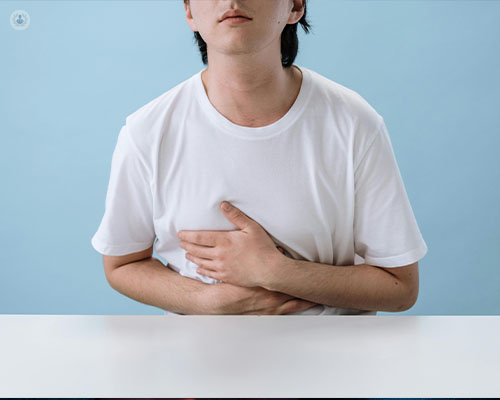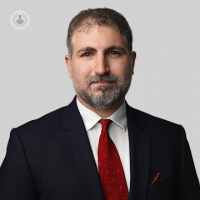How to stomach gastroesophageal reflux disease
Written in association with:After a particularly decadent meal – heaped with fried garlic and butter and truffle mushrooms and followed by a thick chocolate mousse, perhaps – it would be normal to feel the urge to belch. And though it may be considered impolite, sometimes what has gone down will find its way back up. And sometimes it comes up burning, feeling like indigestion or heartburn. This is a phenomenon called acid reflux. Acid reflux is when the acid of the stomach leaks out from the stomach and up the oesophageal track. It is quite common, and most people have experienced it now and then. While the occasional acid reflux is not something to be concerned about, acid reflux that happens constantly may be indicative of a disease called gastroesophageal reflux disease (GERD). Dr Ahmed Albusoda serves the need-to-know about this condition in a way that's easy to swallow.

GERD happens due to a failure of the lower oesophageal sphincter, which keeps the contents of the stomach and the oesophagus separated unless there is food passing through. Should the sphincter open too frequently or never close entirely, stomach acid will escape. Though acid reflux is to be expected periodically, should it be a frequent occurrence, the corrosive stomach acid starts to burn the oesophagus, inside of the mouth and throat, and wear away at the enamel of the teeth. There could be a chance of it getting into the airways and lungs, and those with prolonged GERD are also more at risk of getting oesophageal cancer due to the damage and scarring of the oesophagus.
GERD can affect anyone, but there are certain demographics more at risk, such as older people, smokers, pregnant women, and people with a history of bulimia.
Effects of GERD
- Ease of regurgitating food and liquids, and the frequent taste of acid in the mouth
- Burning feelings in the stomach, chest, and throat, leaving it feeling raw
- nausea
- bad breath
- sensitive, yellowing teeth
- if acid gets into the airways, can trigger fits of coughing or wheezing
The reflux can be triggered by activities that help the acid against gravity, like lying down or bending over. Those with GERD will notice that the condition is exacerbated after eating rich and fatty food, such as
- chocolate
- alcohol and carbonated drinks
- coffee
- alliums
- citrus fruits
- spicy foods
- tomato-based dishes
Treatment for GERD
It is recommended that those with GERD should try sleeping on their sides, wearing loose-fitting clothing, being conscious of their diet, decreasing any drinking or smoking, and eating dinner earlier so they have more time to digest. Aside from lifestyle changes, some medications can help manage GERD.
Non-prescription medicines like antacids help to neutralise the stomach acid and make it not as damaging to the oesophagus tissue, or alginates which are derived from seaweed and create an actual barrier between the acid and the oesophagus. There are also prescription options that disrupt the body’s production of stomach acid, such as histamine receptor antagonists (H2 blockers) and proton pump inhibitors (PPIs).
For extreme cases, the doctor may instead recommend surgeries. Nissen fundoplication is the most common surgery for those with chronic GERD, a laparoscopic procedure in which the surgeon will wrap the top of the stomach around the lower oesophagus, essentially reinforcing that sphincter. Another option is the implantation of the LINX device, where small magnets are placed in the sphincter to support the separation between the stomach and the lower oesophagus.
For concerns regarding acid reflux or other gasterenterological issues, Dr Ahmed Albusoda is available for consultation via his Top Doctors profile.


